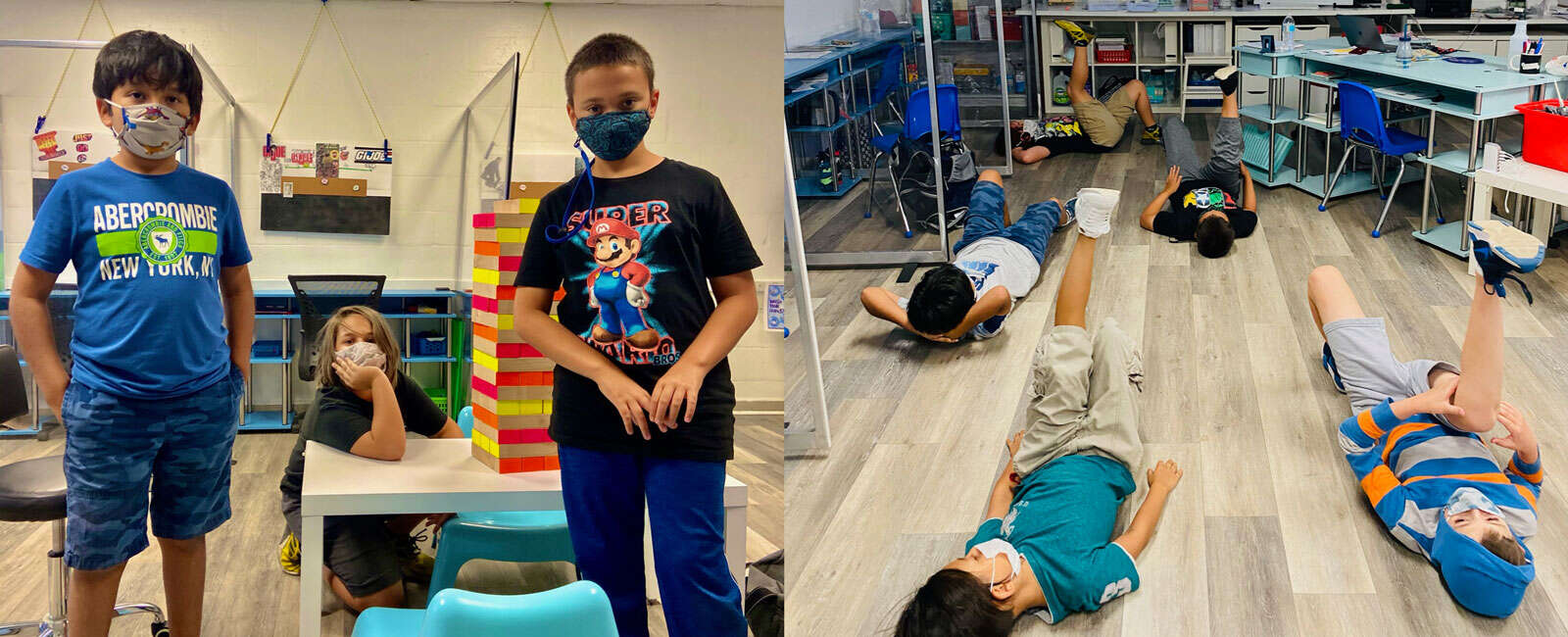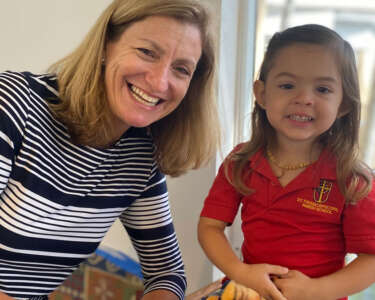By Eileen Vento, B.S. Education, M.S. Psychology & Rebekah Valdes, Linden Preparatory Administrator
The pandemic has brought the reality of education straight to the family room, literally. During home education and Zoom school, parents have gotten a front-row seat to exactly what kids are learning in school and how effective our current programs are at inspiring young learners.
The feedback from most parents has been a daunting appreciation for teachers and what they do daily to educate our children. In addition, there is a clearer understanding of how unique their children are. Not all children learn the same way. That became quite evident for parents trying to work from home, keep up with their homes and make sure their child’s work was done.
Since the close proximity has given parents a window to how their child learns, insight as to what works for them – but most importantly, what is not working – has become glaring. This invaluable perspective regarding their children has put them more in tune with what their child’s needs are and placed them in the driver’s seat of their child’s education. Academic expectations that were previously standard in education do not necessarily work for their particular child and may not be suitable for today’s growing world.
Although parents are understanding to a teacher’s plight, they are frustrated – and rightfully so. As they are becoming more resonant with their children’s all-encompassing (not just academic) needs, there is a realization that the model of traditional schooling is not capable of emotional and psychological intervention that is becoming increasingly necessary for students in a fast-paced generation.
The pandemic has only exacerbated the already-prevalent problem of addressing students’ emotional needs. It is impossible in a class of 20 or more students for a teacher to be consistently aware of a child’s mental and academic needs on a regular basis. That is why some parents will look at enrolling their child in private schooling or boarding school for boys and/or girls to see how better they fair in a different environment with the potential of smaller classrooms.
Traditional schools are stepping up their technology game using programs that provide academic differentiation. The problem of individualized support regarding psychological needs are still a huge roadblock in education, especially when it comes to early intervention of the more subtle diagnosis of dyslexia and ADHD (attention-deficit/hyperactivity disorder).
Families are turning toward a home school model or are looking for ways for their child to get an individualized approach to learning in smaller school settings. The state is making it easier to take advantage of scholarship programs like “Step Up” so families can seek a tailored approach that traditional schools cannot currently provide.
For more information, contact Linden Preparatory at Kendall United Methodist Church, 7600 SW 104 Street, Pinecrest, FL 33156, call 786.338.8505 or visit lindenprep.org. Linden Preparatory has been utilizing an all-encompassing approach to education for over 10 years. We are well suited, through years of experience, to meet the unique needs and demands of the individual learner. #educationmadetoorder














 Deering Estate
Deering Estate
 Massage Envy South Miami
Massage Envy South Miami
 Calla Blow Dry
Calla Blow Dry
 My Derma Clinic
My Derma Clinic
 Sushi Maki
Sushi Maki
 Sports Grill
Sports Grill
 The Healthy Kitchen
The Healthy Kitchen
 Golden Rule Seafood
Golden Rule Seafood
 Malanga Cuban Café
Malanga Cuban Café

 Kathleen Ballard
Kathleen Ballard
 Panter, Panter & Sampedro
Panter, Panter & Sampedro
 Vintage Liquors
Vintage Liquors
 The Dog from Ipanema
The Dog from Ipanema
 Rubinstein Family Chiropractic
Rubinstein Family Chiropractic
 Your Pet’s Best
Your Pet’s Best
 Indigo Republic
Indigo Republic




 ATR Luxury Homes
ATR Luxury Homes


 2112 Design Studio
2112 Design Studio
 Hamilton Fox & Company
Hamilton Fox & Company
 Creative Design Services
Creative Design Services
 Best Pest Professionals
Best Pest Professionals
 HD Tree Services
HD Tree Services
 Trinity Air Conditioning Company
Trinity Air Conditioning Company
 Cisca Construction & Development
Cisca Construction & Development
 Mosquito Joe
Mosquito Joe
 Cutler Bay Solar Solutions
Cutler Bay Solar Solutions


 Miami Royal Ballet & Dance
Miami Royal Ballet & Dance
 Christopher Columbus
Christopher Columbus
 Pineview Preschools
Pineview Preschools
 Westminster
Westminster
 Carrollton
Carrollton
 Lil’ Jungle
Lil’ Jungle
 Frost Science Museum
Frost Science Museum
 Palmer Trinity School
Palmer Trinity School
 South Florida Music
South Florida Music
 Pinecrest Orthodontics
Pinecrest Orthodontics
 Dr. Bob Pediatric Dentist
Dr. Bob Pediatric Dentist
 d.pediatrics
d.pediatrics
 South Miami Women’s Health
South Miami Women’s Health

 The Spot Barbershop
The Spot Barbershop
 My Derma Clinic
My Derma Clinic




 Miami Dance Project
Miami Dance Project

 Rubinstein Family Chiropractic
Rubinstein Family Chiropractic
 Indigo Republic
Indigo Republic

 Safes Universe
Safes Universe
 Vintage Liquors
Vintage Liquors
 Evenings Delight
Evenings Delight





 Atchana’s Homegrown Thai
Atchana’s Homegrown Thai
 Baptist Health South Florida
Baptist Health South Florida

 Laser Eye Center of Miami
Laser Eye Center of Miami
 Visiting Angels
Visiting Angels
 OpusCare of South Florida
OpusCare of South Florida

 Your Pet’s Best
Your Pet’s Best





 HD Tree Services
HD Tree Services
 Hamilton Fox & Company
Hamilton Fox & Company


 Creative Design Services
Creative Design Services